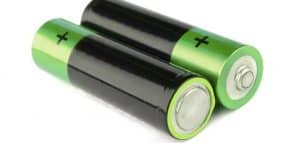
With the current push to integrate more environmentally-friendly practices into how we approach energy consumption, the need for sustainable energy solutions to evolve and keep up with the changing trends and developments in technology are more important now than they have ever been. One possible answer to this need is the development of solid-state batteries. Solid-state batteries diverge from lithium ion batteries in that they have solid electrolytes, instead of liquid electrolytes, which enables the battery to have higher electrochemical stability. This shift from liquid to solid electrolytes is significant as it eliminates some of the biggest issues found in the more commonly used lithium batteries such as: high flammability, risks of thermal runaway, and toxic leaks. Aside from being a safer and more stable form of storing electrical potential energy, the replacement of liquid electrolytes to solid electrolytes also means that energy can be stored in more compact casings.
These stated advantages have unsurprisingly caught the attention of not only electric vehicle (EVs) manufacturers, but also stakeholders involved in heavy road transportation and maritime travel. Solid-state battery’s downsized frame yet equal energy storage capabilities means that it effectively cuts cost while being able to increase performance and stability. Although there is still work to be done before it can be considered commercially viable, the potential it holds has led many to believe that it should and will become the standard of electrical energy storage systems within the coming decade.
- Safe and reliable
Currently, lithium-ion batteries are still favored and more commonly used because of its relatively higher energy density and longer life compared to batteries made of other materials. However, as previously mentioned, the use of liquid electrolytes exposes the battery to a list of potential dangers which make it unpredictable to work with. There has always been a risk for any product that uses lithium-ion batteries whether it be toys, computers, or even EVs, as the battery’s susceptibility to high temperatures means that the it could easily overheat or spontaneously combust if the battery pack is damaged or faulty. This threat has been a major factor in prompting many researchers and battery developers to double down on their view of solid-state batteries, which are non-flammable and resistant to self-ignition, as a safer and better battery alternative for all types of technologies.
- Energy Efficient
Aside from its apparent advantages in safety, researchers believe that solid-state batteries also hold the potential to store up to 2 to 3 times the amount of energy that could be stored in a liquid-electrolyte lithium ion battery of the same size. The drastic step up in storage capacity could prove to be revolutionary for EV manufacturers in addressing common reservations about EVs such as range anxiety, as using solid-state batteries will allow EVs to travel even longer distances without any changes to battery size. The ability of solid-state batteries to function under higher temperatures means that it wouldn’t require the same cooling systems needed for lithium ion batteries to keep it from overheating, hence, apart from it being a more compact battery system it is also a lighter and more efficient alternative as well.
- Design Flexibility
Another added advantage that solid-state batteries bring to the table is their malleability. Solid-polymer cells can be made to be as slim as 0.64mm, about one-tenth the thickness of the thinnest liquid ion cells, making them a lot more flexible and easier to work with. This also means that battery casings for solid-state batteries are not limited to rectangular shapes but rather, can be molded to fit different space constraints depending on the products it is being fitted for. This level of customizability enables manufacturers to explore bolder and more creative design solutions as well, since battery spacing will not be as much of an issue as it is with liquid ion batteries.
Challenges
Indeed there are many reasons why the shift from liquid to solid-state batteries would be a favorable change, however, as mentioned previously, there are still hurdles that solid-state battery researchers have to get over in order for it to be fully implemented into practical everyday settings. One such hurdle stems from the fact that solid-state batteries feature physical limitations which are not present on lithium ion batteries. Solid-state batteries are inherently less conductive than their lithium ion counterparts because the solid medium means that it diffuses ions at a slower rate. Apart from that, the performance of solid-state batteries is thermally dependent – Solid-state batteries only operate optimally only under higher temperature conditions, while their conductivity and performance is reduced drastically under lower temperatures. This means that currently, solid-state batteries are constrained by temperatures which prevents them from being as versatile as they need to be.
Another limitation to solid-state batteries is that being relatively young technology, solid-state batteries are still quite pricey compared to the other available alternatives. It is estimated that the price of solid-state batteries might range from around $800/kWh to $400/kWh by 2026 compared to liquid electrolyte batteries which currently cost around $156/kWh. This means that solid-state technology is yet to be a financially viable alternative as well.
Conclusion
Solid-state battery technology is still well within its development stages and still needs to be further improved and refined. However, despite the early stage it is currently in, the potential that solid-state batteries currently are exhibiting is already very promising. Once solid-state technology has matured, it will undoubtedly be a huge advancement in not just battery technology, but will propel the move towards sustainable energy sources as a whole through providing more efficient and safer energy storage solutions.


